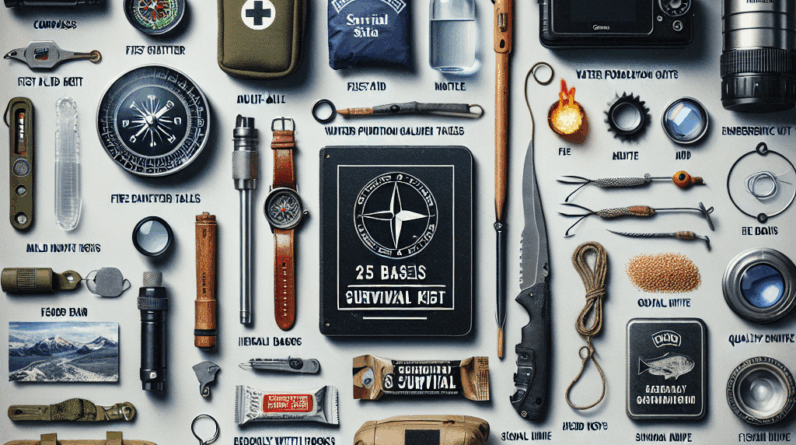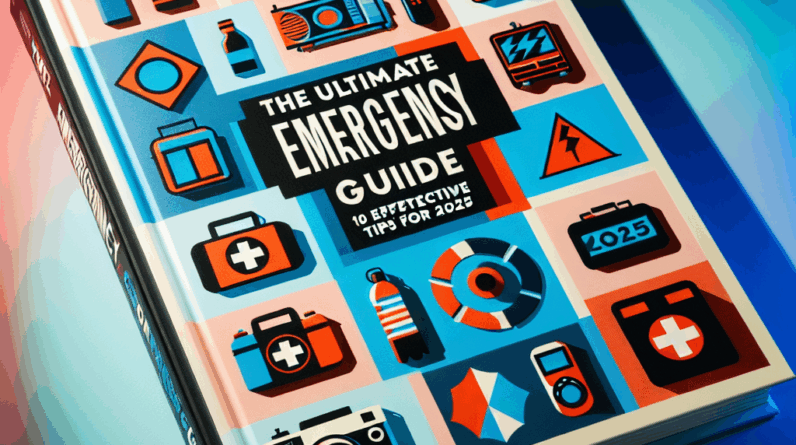Traveling opens the door to new experiences and adventures but also brings potential risks. Being prepared for emergencies when you’re away from home is crucial for dealing with unexpected situations confidently and efficiently.
Understanding Potential Emergencies
When we travel, our minds often focus on the exciting aspects like breathtaking views, exotic foods, and cultural immersion. However, it’s important to recognize that emergencies can occur at any time and in any place. Experiences ranging from natural disasters to sudden health issues have highlighted the importance of understanding and preparing for these potential emergencies.
For example, regions prone to natural disasters such as earthquakes or hurricanes require additional research into local weather patterns. A personal encounter with unexpected flooding in Costa Rica during the rainy season underscored the value of staying alert to local weather advisories.
Personal health emergencies also deserve attention. Carrying medical information, such as allergy lists or medical records, is essential for receiving appropriate care in unfamiliar places. This was particularly relevant to me when an allergy required urgent attention in a foreign country.
Packing an Emergency Kit
One key travel preparation step is packing an emergency kit. This doesn’t need to be cumbersome—a compact, well-stocked kit can be a lifesaver. Essentials include basic first-aid items, necessary medications, and copies of important documents like your passport and ID.
I also emphasize the importance of having a digital backup of crucial documents accessible from your phone, which saved me when I lost my wallet in Europe. Additionally, packing snacks like granola bars or dried fruits can provide comfort and sustenance during unexpected delays.
Staying Informed
Before setting off on your journey, thorough research about your destination is vital. This includes checking local news and advisories to stay updated on any potential disruptions. Social media can also offer insights into recent local issues that might not be covered in mainstream travel guides.
Weather apps are indispensable tools for receiving real-time updates, which can help in planning activities or taking precautions during adverse weather conditions. This approach proved invaluable during a trip to Thailand, allowing for well-timed beach visits amidst unpredictable weather.
Establishing Emergency Contacts
Creating a list of emergency contacts is a critical pre-travel step. This list should include numbers for local emergency services, your accommodation contacts, and your country’s embassy. Additionally, having friends’ or relatives’ contact information readily available can provide a backup communication path in case of technological failures.
It’s also wise to share your travel itinerary with someone you trust. This simple act ensures that someone always knows your planned whereabouts, enhancing your safety during your travels.
Knowing What to Do in an Emergency
Preparation involves planning for potential emergencies, including knowing the locations of hospitals and emergency exits. Familiarizing yourself with these details ahead of time can significantly reduce panic and confusion during an actual emergency.
Practicing how to remain calm and collected helps manage stressful situations more effectively. Recalling my own experiences, maintaining composure was crucial in navigating unexpected events calmly and efficiently.
Frequently Asked Questions
# 1. What should I include in my emergency kit when traveling?
Include essential first-aid supplies, necessary medications, important documents, and snacks in your emergency kit. Customize your kit based on your travel needs to ensure it’s practical and accessible throughout your trip.
# 2. How can I stay updated about potential emergencies while traveling?
Stay informed by researching your destination in advance, monitoring local news sources, engaging with social media relevant to your destination, and using weather apps to receive timely updates.
# 3. Why is it important to share my travel itinerary with someone?
Sharing your itinerary helps ensure that someone knows your location in case of an emergency, making it easier for them to assist or initiate help if necessary.
# 4. What are some common travel emergencies I should be aware of?
Be aware of potential travel emergencies such as health issues, natural disasters, lost belongings, and accidents. Knowing these can help you better prepare for and respond to such situations.
# 5. How can I keep calm in an emergency situation while traveling?
In an emergency, focus on breathing deeply and assessing the situation calmly. Having a pre-planned response can guide your actions and help maintain your composure.




